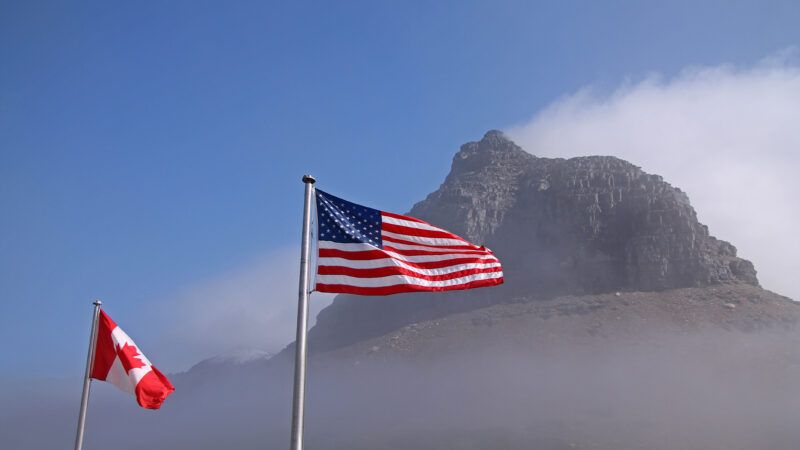This Indian Family Froze to Death Trying To Reach America. Our Immigration System Should Have Saved Them.
Visa pathways are limited for people like the Patels.

On January 12, Jagdish and Vaishaliben Patel flew with their children, 3-year-old Dharmik and 11-year-old Vihangi, from India to Toronto, Canada. The family then journeyed westward to Emerson, Manitoba, a small border town just north of Minnesota and North Dakota.
A blizzard separated the Patels from the rest of their group, which was comprised of other Indian nationals and the American man who was reportedly transporting them. Temperatures dipped as low as -22 degrees Fahrenheit. On January 19, one week after they arrived in Canada with the hopes of entering the United States, the Patels were found frozen and dead.
— RCMP Manitoba (@rcmpmb) January 27, 2022
Their case is an unfortunate example of what some people resort to when their immigration options are limited. Often, they are willing to take on extremely risky journeys for the chance of a better life. The Patels' story is proof that an inaccessible immigration system won't deter migrants whose minds are made up but will instead push them toward unsafe passages.
Local media reported that the Patels, who had worked as schoolteachers in the west Indian state of Gujarat, hoped to create a "new life" in the U.S. Jagdish made just $120 per month working in a local factory, and his wife Vaishaliben dreamed of working in a beauty salon in America. NBC News noted in January that Jagdish "wanted a better education for his kids, as well as better job opportunities and higher pay for himself and his wife, none of which he felt he could find in India." He looked to one of many advertisements in his town marketing easy passage to the U.S. Thus began the journey that would prove fatal.
For people like the Patels, immigration pathways are limited. Most Indian legal permanent residents of the U.S. have received family-based or employment-based green cards—amounting to 98 percent of visa holders as of 2018. Employment-based channels largely bring in Indian migrants with higher skills and better education than the Patels, and the family did not seem to have relatives in the U.S. who could have sponsored them. Being Indian, they were ineligible for the Diversity Visa that caters to migrants in countries with low rates of immigration to the U.S. They likely would not have been eligible for refugee or asylum pathways, given that their reasons for migrating were more rooted in economic reasons than safety concerns.
"These people effectively had no legal options that allowed them to safely travel to the U.S. and work," says Sam Peak, an immigration policy analyst at Americans for Prosperity, a free market think tank.
The lack of actionable immigration pathways becomes lethal when migrants decide to attempt to cross into the U.S. regardless of how risky the journey may be. When migrants are faced with a strong border, they attempt more dangerous crossings where Border Patrol policing is less likely, according to research from Princeton University sociologist Douglas Massey. For instance, between 1998 and 2016, the number of undocumented border crossers entering the U.S. from Mexico declined by 70 percent, despite migrant deaths rising by 20 percent.
Though these findings center on the U.S.-Mexico border, they also help explain why the Patels' journey turned deadly. "Even though unlawful migration to the U.S. is now more of a global phenomenon than just a regional one, the insights from Massey's findings remain exactly the same," says Peak. "Even if we see fewer people crossing in response to border enforcement, we see more dead bodies."
A few things could help prevent tragedies like this. First, the U.S. should improve visa pathways for Indians who do not fit neatly into existing categories. That might include increasing the number of EB-3 visas issued to Indians, which would allow more people "performing unskilled labor requiring less than 2 years training, education, or experience" to come here on a nontemporary basis. Further, research from the Center for Global Development found that highlighting risks to migrants in public information campaigns was unlikely to minimize the number of risky journeys. American officials should instead focus on communicating alternatives, rather than solely focusing on risks as a method of deterrence.
Multiple factors prevented the Patels from reaching the better life they dreamed of having in the U.S. The American immigration system should welcome people who are seeking better opportunities and can improve the economies of their new communities. It may be too late for the Patels, but visa reforms can help prevent future migrant deaths on our borders.


Show Comments (177)